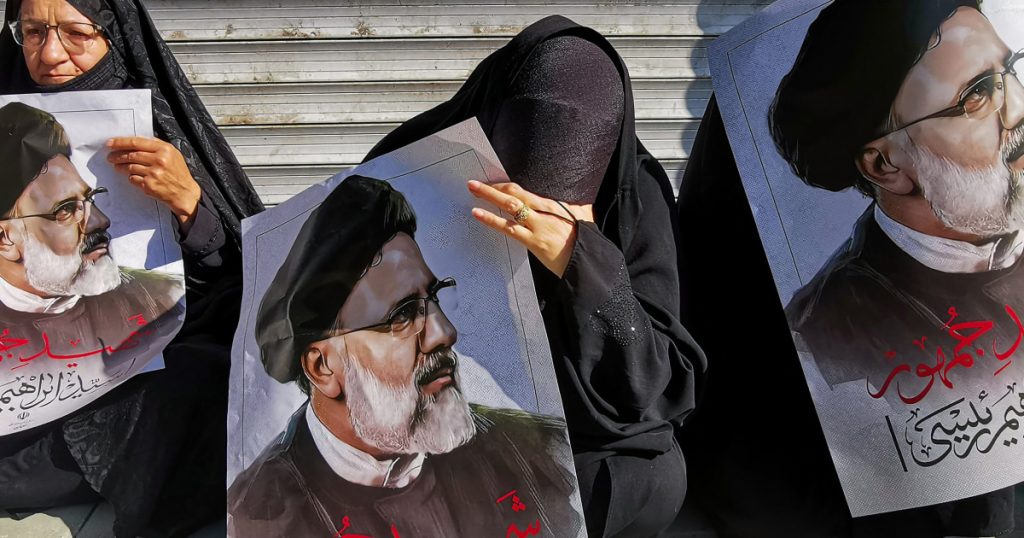Iran’s supreme leader, Ayatollah Ali Khamenei, presided over a funeral for the late President Ebrahim Raisi and others killed in a helicopter crash. The funeral took place at Tehran University, where the caskets were draped in Iranian flags with the pictures of the deceased on them. Khamenei led the standard prayer for the dead in Arabic before leaving the ceremony. The crowd rushed forward to touch the coffins, and Iran’s acting president, Mohammad Mokhber, openly wept during the service. Chants of “Death to America!” filled the air as the coffins were carried out on shoulders and loaded onto a semitruck for a procession through downtown Tehran.
Top leaders of Iran’s paramilitary Revolutionary Guard and Ismail Haniyeh of Hamas were in attendance at the funeral. Haniyeh expressed condolences on behalf of the Palestinian people and emphasized the importance of the Palestinian issue in the Muslim world. The ongoing Israel-Hamas war was a focal point of discussions during the funeral, with Raisi referring to the conflict as an “earthquake in the heart of the Zionist entity.” The funeral was also attended by Pakistan’s Prime Minister Shehbaz Sharif and a delegation from the Taliban of Afghanistan, including their Foreign Minister.
The theocracy in Iran declared five days of mourning following the tragic crash, encouraging people to attend public mourning sessions. Funerals for the deceased are scheduled to take place in two more cities, with Raisi expected to be buried in the holy city of Mashhad on Friday. Raisi’s unexpected death led to scenes of mourning in Iran, with an outpouring of condolences from around the world. However, it remains to be seen if his death will lead to public grieving on the scale of previous mass funerals in Iran, such as that of Gen. Qassem Soleimani in 2020.
Raisi, a conservative hard-liner known for brutal crackdowns on political opponents and protesters, clashed with the West during his tenure as president. His death has raised concerns about a potential succession crisis, as he was seen as a top contender to replace the aging Khamenei. Iran’s first vice president, Mohammad Mokhber, has been named as a temporary caretaker ahead of an election to choose a new president within the next 50 days. Raisi’s death comes at a time of heightened tensions, especially after Tehran’s retaliatory attack against Israel.
The funeral drew attention to Iran’s relationship with militant groups like Hamas and Hezbollah, as well as its nuclear program, which has advanced since the U.S. withdrew from the nuclear deal. Although Raisi’s death has raised concerns about stability within the regime, most observers believe there is no imminent threat to the Iranian government. As Iran navigates the aftermath of Raisi’s death and prepares for a new presidential election, the country faces challenges both domestically and on the international stage.


